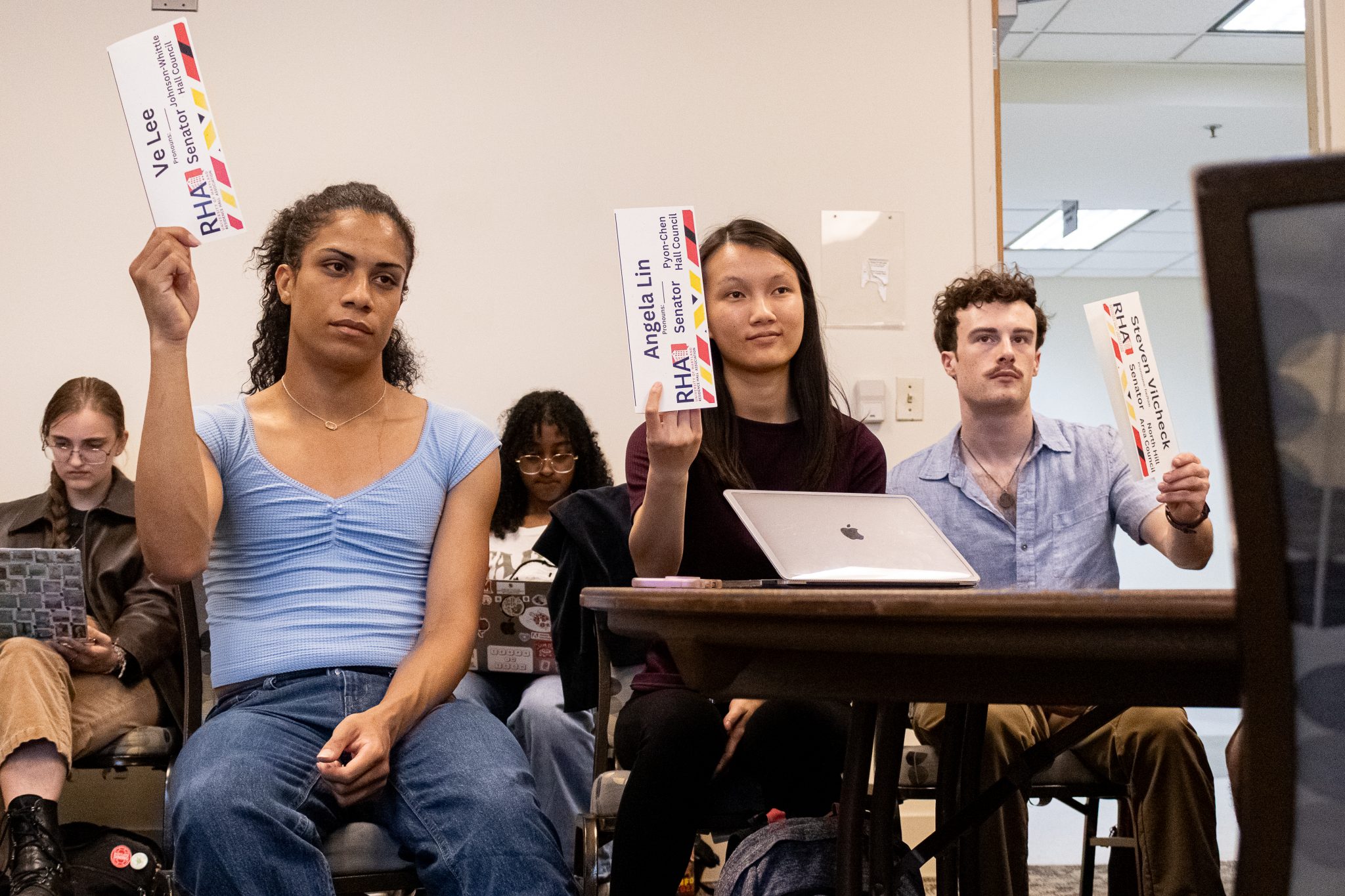The University of Maryland Residence Hall Association passed a resolution to create a committee dedicated to accessibility and disability resource advocacy on campus at its last senate meeting of the semester Tuesday.
The committee plans to collaborate with this university’s accessibility and disability service department to connect with this university’s students with disabilities and make accessibility resources more readily available, according to the resolution.
The resolution specifies that it is an ad hoc committee and will be reviewed after the next academic year to determine whether it will be abolished or remain part of the governing body for another year or permanently.
Senator and sophomore marketing major Angela Lin authored and proposed the resolution after she watched a presentation about on-campus accessibility awareness at a previous RHA senate meeting.
Lin’s idea for the new committee had already been in the works, she said, but the presentation solidified the thought that the committee’s creation was necessary to represent students with disabilities on campus.
“It’s important for students [with disabilities] to also have a voice in RHA,” Lin told The Diamondback.
[UMD RHA elects Emily Shoemaker as president for next academic year]
The Americans with Disabilities Act, passed in 1990, prohibits discrimination against people with disabilities. This university’s ADA department handles physical accommodations such as ramps or elevators in on-campus buildings, according to Lin.
This university’s ADS department coordinates academic and housing accommodations for students with disabilities, according to the department’s webpage. This might include arrangements for students with ADHD or other mental health conditions, Lin said.
Just more than eight percent of this university’s student population are registered with ADS, according to the department’s website.
Senator Justin Carlson voted in favor of the committee’s creation at Tuesday’s meeting. Understanding where and how to apply for ADS accommodations through this university is not currently well advertised, the freshman government and politics and public policy major told The Diamondback.
Students may not be comfortable discussing their disabilities with peers or faculty when searching for accommodation information, Carlson said. A committee dedicated to sharing these resources and connecting with this university’s community may ease that difficulty, he explained.
“A committee … would be able to help build a way for students to interact with the ADS system and the ADA system, and allow for people to have more information going in [rather] than just sitting and hoping that they figure it out themselves,” Carlson said.
[UMD leaders discuss impacts of federal policy changes, micromobility at RHA town hall]
Opposition to the resolution’s passing was mostly concerned with the perceived impact that a new committee could have. Senator Aditya Lahiri voted against the resolution because he thought the accessibility and disability committee’s proposed responsibilities could be absorbed by RHA’s diversity and inclusion action committee.
The new committee’s creation could divert manpower away from pre-existing committees with similar focuses, the freshman computer science major told The Diamondback.
But Lin said a dedicated accessibility committee could aid the cause in ways RHA’s diversity and inclusion action committee could not. The committee’s value lies in its potential to directly connect students with the ADS and ADA systems, Lin said.
Now that the committee has been established for the upcoming academic year, Lin hopes to be involved in planning events such as movie nights or game nights for this university’s community. She also hopes to encourage more students with disabilities on campus to be involved with the committee, she said.



